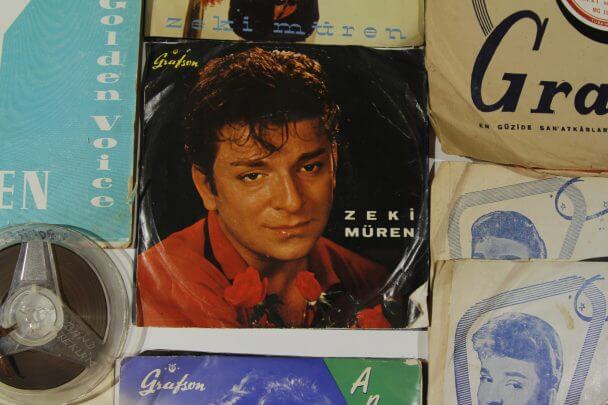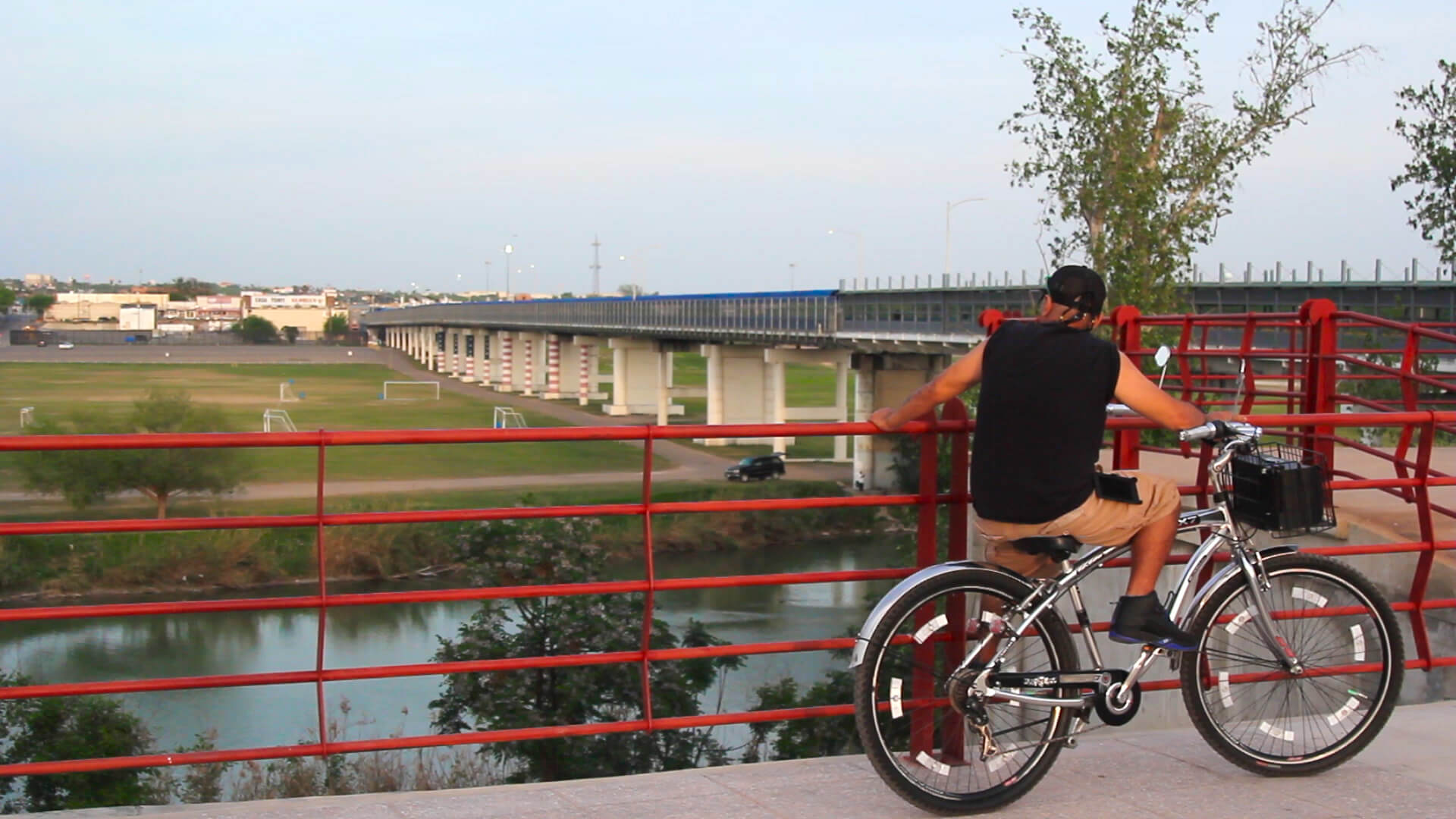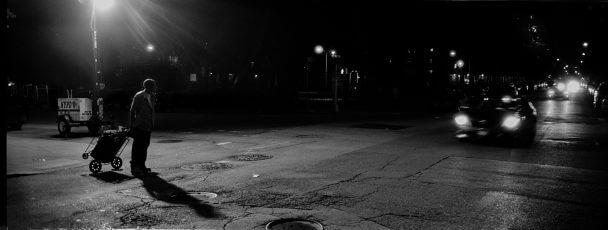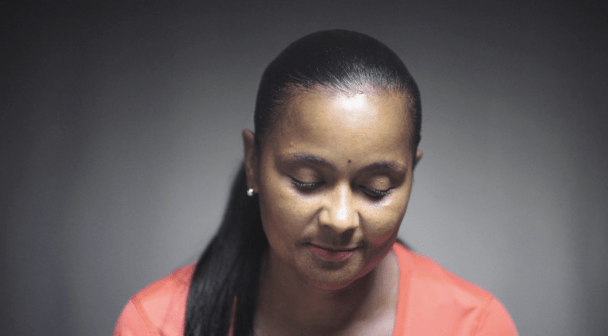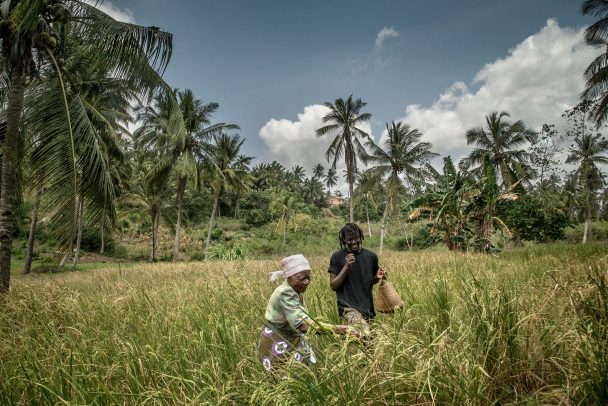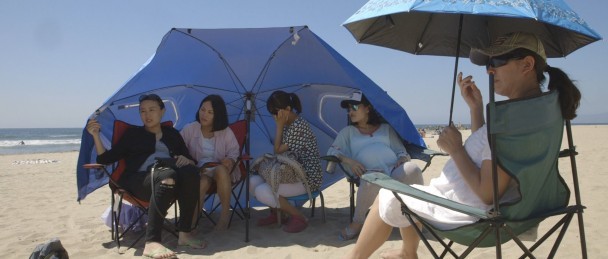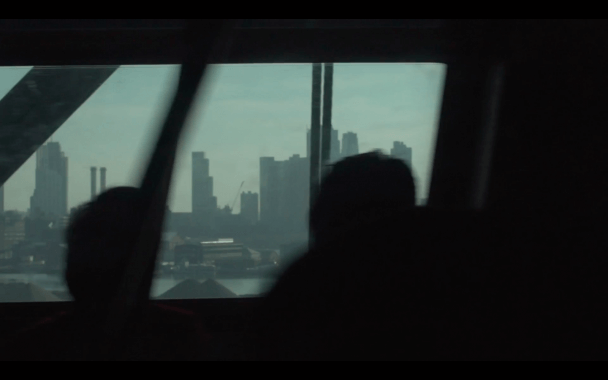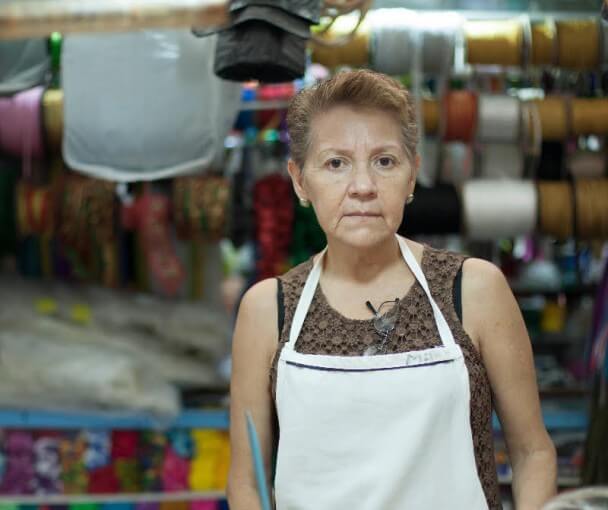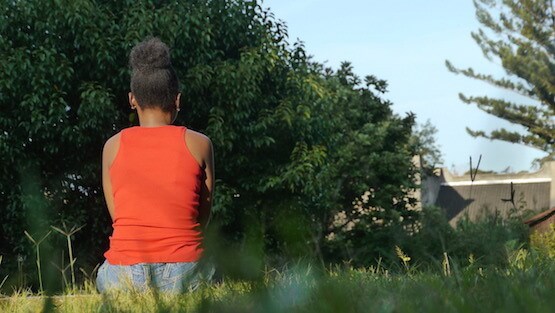Announcing our 2018 Diversity Fellows Initiative Grantees
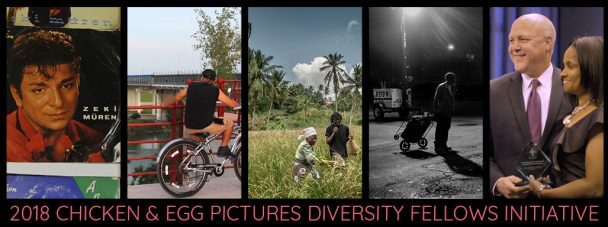
Congratulations to our 2018 Diversity Fellows: Beyza Boyacioglu; Robie Flores; Nadia Hallgren; Nailah Jefferson; and Maia von Lekow, with co-director Chris King; hailing from Istanbul, Turkey; Eagle Pass, TX; New Orleans, LA; The Bronx, NY; and Nairobi, Kenya, respectively.
In addition to a $5,000 grant and a seven-month mentorship program, the Fellows will come together in upstate New York for a multiday storytelling retreat aimed to help develop and strengthen their film’s narratives. “This year we’ll be doing a deep dive into storytelling,” says Lucila Moctezuma, Director of Programs at Chicken & Egg Pictures. “The five-day retreat will allow our Diversity Fellows to have complete focus on their art and provide them with the space to learn from one another’s diverse perspectives and artistic practices. We are so thrilled to be working with these exceptional group of women filmmakers who have such important stories to tell and such special ways of telling them.”
The Diversity Fellows Initiative is made possible with the generous support of The Harnisch Foundation, the MacArthur Foundation, and the Time Warner Foundation.
For additional information, please visit our Programs page. Participants of the Diversity Fellows Initiative are chosen through the Accelerator Lab Open Call process. The 2019 Accelerator Lab Open Call will launch on May 3.
2018 Diversity Fellows Initiative Grantees
A Prince From Outer Space: Zeki Müren, directed by Beyza Boyacioglu
This experimental, multilayered film uses Zeki Müren, Turkey’s most celebrated singer and modern day queer icon, as a prism to explore the country’s internal contradictions, from its founding as a modern, secular nation to the current crisis. Zeki, “Turkey’s Liberace,” was a chameleon-like figure. He expertly used his celebrity to navigate society—allowing audiences to see in him only what they wanted to see. The film deconstructs how myths are made and consumed, as it provides a window onto Turkey, a nation existing between the worlds of the east and of the west while belonging to neither.
Beyza Boyacioglu is a filmmaker and artist from Istanbul, currently based in New York. Her work has been exhibited in MoMA Documentary Fortnight, IDFA, RIDM, Anthology Film Archives, Morelia International Film Festival, Brooklyn Museum, Maysles Cinema, and !f Istanbul, among others. She was a part of MIT Open Documentary Lab between 2014–2017. She’s been a fellow at UnionDocs, Flaherty Seminar, and Greenhouse. She holds an MASc in Comparative Media Studies from MIT and an MFA in Computer Art from SVA.
The In Between, directed by Robie Flores
At the intersection of the northern Mexico desert and the plains of southwest Texas exists a symbiotic community. Here, people’s lives are spread across two countries, connected by a bridge that everyone must travel. For some, crossing to the other side means getting to work or school. For others, life straddling the border is the only way to keep their family together. Through a collection of interweaving vignettes, The In Between is a poetic ode to a greater reality of the border than the one portrayed on the news, offering a nuanced and intimate portrait of a place and its people at the heart of Mexican-American identity.
Robie Flores grew up on the US/Mexico border. She is an independent filmmaker and video editor based in New York City. She previously worked with Loki Films as an assistant on Detropia, The Education of Mohammed Hussein, and ESPN’s Nine for IX documentary, Branded. Her work has appeared on CNN and Bloomberg and has been featured by Teen Vogue, Fusion, Allure, and i-D Vice. The In Between is her first feature film.
Omnipresence, directed by Nadia Hallgren
A look at the complexities of a South Bronx housing project over the course of a summer.
Nadia Hallgren is an award-winning filmmaker and director of photography from The Bronx, New York. With a focus on vérité storytelling, her cinematography credits include the Sundance award-winner Motherland (2017), Academy Award-nominated and Sundance Grand Jury Prize-winner Trouble the Water (2008), and Sundance award-winner Trapped (2016). She has directed short films and series for Field of Vision, Topic, and PBS; and is a member of the Academy of Motion Picture Arts and Sciences, a 2018 Concordia Studio Artist in Residence, and an alum of International Center of Photography. Most recently, Nadia won the special jury prize at SXSW 2018 for an independent episodic series she directed about women running for office in response to Trump being elected.
Commuted, directed by Nailah Jefferson
Commuted tells the story of Danielle Metz, a 52-year-old woman trying to find her footing after spending nearly half of her life in prison. In 2016 Danielle’s was one of 568 life sentences President Obama overturned. Her life story is just one example of how the US criminal justice system impacts black families—before she was incarcerated, she had lost one boyfriend to police violence, another to a wrongful conviction, and then found herself in prison due to involvement with her husband’s drug ring. As Danielle starts to right her path, we reflect with her on a life interrupted.
Nailah Jefferson’s first film, Vanishing Pearls, told the story of a little known African American oyster fishing community and their fight for justice after the BP oil spill. After acquisition by ARRAY/AFFRM, Vanishing Pearls streams on The Urban Movie Channel. Nailah was nominated for a 2017 National Magazine Ellie award for Essence Magazine’s Black Girl Magic Episode 4. Nailah’s first narrative, Plaquemines, was chosen as an American Black Film Festival HBO Shorts finalist and is available on HBO, HBO GO, and HBO On Demand.
The Letter, directed by Maia von Lekow & Chris King
This story happens in rural coastal Kenya. When Karisa, a young artist living in the coastal city of Mombasa, reads a Facebook post accusing his Grandma of being a witch, he decides to return to his rural home to confront the accusations against her. The accusers, Karisa’s uncles, demand that Grandma repent and be exorcised in a Pentecostal ceremony. The story evolves into a family confrontation between those trying to protect Grandma and those condemning her. At the end, love and care triumph against superstition and economic interest.
In today’s post-colonial Kenya, the disturbing trend of witchcraft accusations, often resulting in the murder of an elder, is being used to cover up hundreds of family disputes over land, inheritance, and money. The Letter is a story through the lens of a single family highlighting the universal issues of elderly abuse and greed.
Maia von Lekow is a Kenyan musician and filmmaker. Fusing her music with a healthy fascination of people and culture, Maia has worked as director, producer, and sound recordist on several music videos and corporate films. She was named a Goodwill Ambassador for UNHCR on World Refugee Day 2013, and has received an African Movie Academy Award for her song “Uko Wapi.” A performing artist in her own right, Maia has appeared on several Kenyan broadcasts and maintains strong links with producers and presenters in the region.
The Letter is Maia’s first feature documentary. Maia will compose original music for the film.
Chris King is an award-winning filmmaker based in Nairobi, Kenya. Born in Australia, Chris studied at The School of Creative Arts at the University of Melbourne with honors in Visual Media. Chris has lived in Kenya full-time since 2007, working as a cinematographer, editor, animator, director, and producer in both factual and non-factual shorts, features, and music videos. In 2009, Chris co-founded Circle and Square Productions with his wife Maia and, in the same year, received an African Movie Academy Award in Editing for his work on the Kenyan feature film, From a Whisper.
2017 Diversity Fellows Announced!
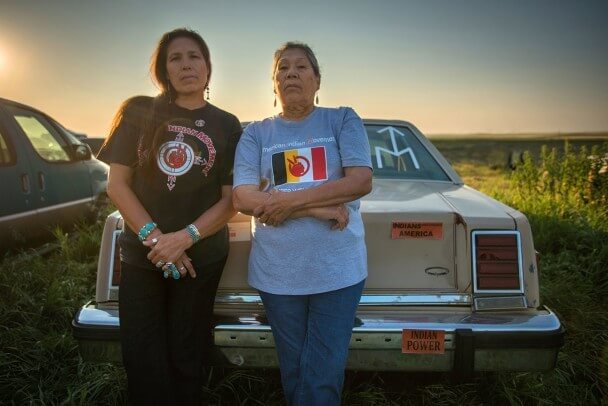
Congrats to our newest group of filmmakers coming into the Nest!
Warrior Women
Co-directed by Christina D. King & Elizabeth Castle (US)
The women of the American Indian Movement fight from a vulnerable place only matriarchs can understand—it is a battle for their children and the culture they hope to preserve for them. Warrior Women chronicles the struggle of Madonna Thunder Hawk and Marcy Gilbert, a Lakota mother and daughter whose fight for indigenous rights started in the 1970s and continues today at Standing Rock.
Through archival footage, verité, and video art, we experience Thunder Hawk’s dedication to Red Power and come to understand that activism is necessary for the very survival and success of Native culture and values for the next generation.
How to Have an American Baby
Directed by Leslie Tai (US)
How to Have an American Baby is a kaleidoscopic voyage that travels behind closed doors into the booming shadow economy that caters to affluent Chinese tourists who travel to the US on birthing vacations—in order to give birth and obtain US citizenship for their babies. Tracing the underground supply chain from Beijing and Shanghai to Los Angeles, the film weaves together vignettes and deeply private moments. In bedrooms, delivery rooms, and family meetings, the story of a hidden global economy emerges—depicting the fortunes and tragedies that befall the ordinary people caught in the web of its influence.
Untitled Race & Criminal Justice Project
Directed by Ursula Liang (US)
A nuanced look at how two communities of color navigate an uneven criminal justice system, anchored by one polarizing New York City case.
It Rains
Directed by Carolina Corral (MEXICO)
Since Oliver was killed, he communicates with his mother María through the rain. He let her know the attorney’s office buried him, along with 117 other corpses, in a hidden mass grave. This sparks a new life mission for María: to hold the government accountable for exhuming them all and returning the bodies back to the families who have been looking for them for years.
The Other Half of the African Sky
Directed by Tapiwa Chipfupa (ZIMBABWE)
The Other Half Of The African Sky follows filmmaker Tapiwa Chipfupa’s attempts to reconcile her estrangement from her family, triggered by a disagreement over her marriage. Through encounters with other women from all walks of life facing their own predicaments, Tapiwa explores how women hold up their half of the sky under a very constrictive and constantly contradictory environment in this very personal, brutally honest, and intriguing document of the disparities and the vast contradictions that women face in contemporary Zimbabwe. The film gives voice to the hopes, fears, and dreams of Zimbabwe’s women while simultaneously revealing a country in flux.
For more information, visit the Diversity Fellows Initiative webpage.

